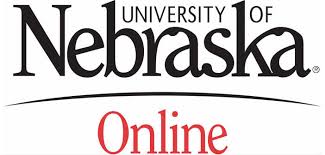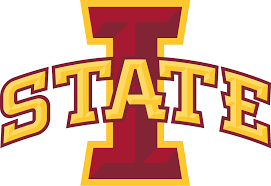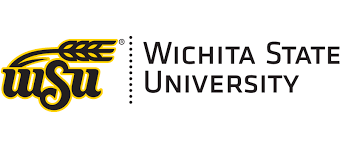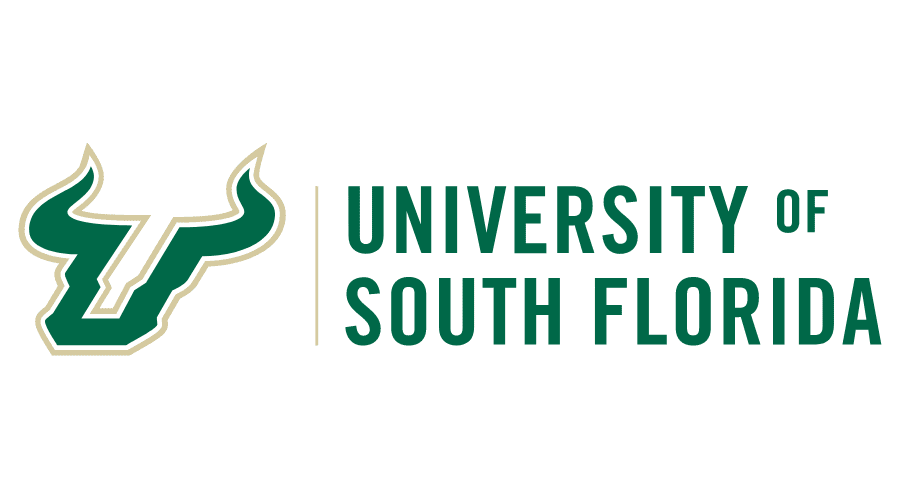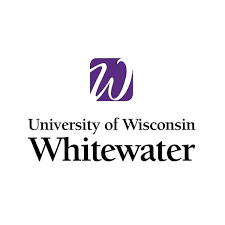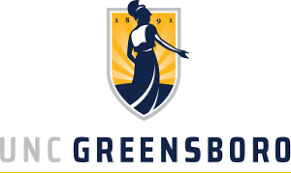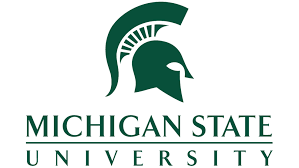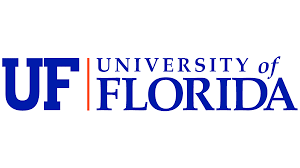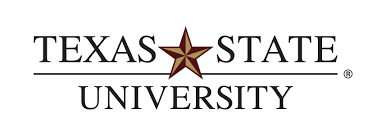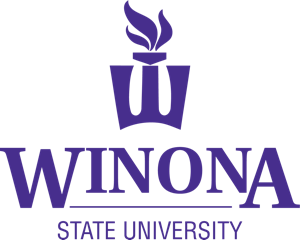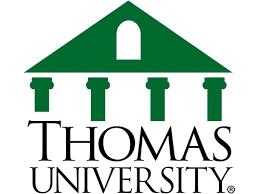The aging population is growing, which means now is the perfect time to make a career in geriatrics!
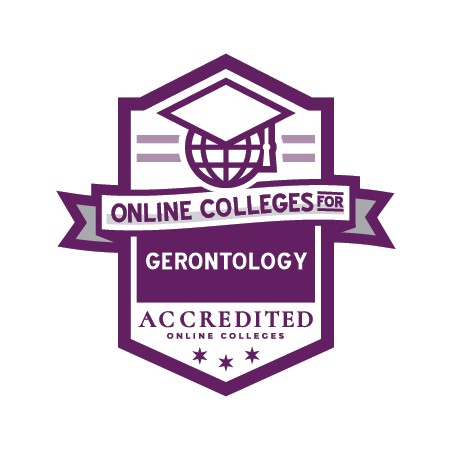
The numbers don’t lie! Baby boomers are now entering the later stages of life, and there currently aren’t enough people trained to address the needs and wants of the aging population. This is where the study of geriatrics becomes important and where pursuing an online gerontology degree from one of the 30 accredited online colleges listed below can really pay off.
Gerontology is the study of the aging process in the final season of people’s lives. Just as the very young have special needs with regard to their health and well-being, those in their advanced years also need unique treatment.
What Do You Learn in a Gerontology Degree Program?
Many of the classes you’ll take while working toward a gerontology degree focus on aging throughout life. You’ll study the aging process in the aging population and focus on all the developmental steps necessary to reach an advanced age. A degree in gerontology highlights the psychological, physiological, and social aspects of the elderly, as well as how public policies affect them.
Another emphasis in many gerontology degree programs is conducting and evaluating research. Some students who pursue a gerontology degree go on to pursue doctoral education in gerontology. If you’re someone who wants to pursue an advanced graduate education, you’ll want to make sure that the gerontology program you select has a strong research focus – which is a trait of the best gerontology PhD programs.
While gerontology degree programs vary widely in the content taught, many schools share a relatively similar set of core classes. You might take a gerontology course online that covers health and optimal aging. You’re likely to study the psychology of grief, the physiology of aging, and developmental psychology, too. Other potential courses include:
- Human Diseases
- Healthcare Reimbursement Methods
- Healthcare Organization Theory
- Social Gerontology
- Nutrition Through the Life Cycle
You might even take free online gerontology courses before you start a formal degree program. Doing so helps introduce you to this field so you can determine if it’s the course of study for you, all without having to pay tuition and fees! Search for “gerontology courses online free” on platforms like Coursera to see what’s available.
See Also: 25 Accredited Online Colleges for Radiation Therapy
What are the Best Online Gerontology Degrees?
Accredited Online College uses the most recent data from the Department of Education’s National Center for Education Statistics to determine the best gerontology programs. Each program is scored individually. It’s then compared to all other universities offering that degree to determine the final score you see by each ranking.
Accredited Online College considers several factors for these rankings, including affordability, student-to-faculty ratio, and the number of on-campus and online programs. For more information, see our methodology page.
See Also: Top 30 Accredited Emergency Management Degree Online Options
1. Texas Tech University
Texas Tech University offers a Master of Science in Human Development and Family Studies with an emphasis on Gerontology that educates you on how people develop throughout their lifetime. This Gerontology concentration is specifically designed for individuals who are already working in child and family services and want to expand their knowledge and expertise through a master’s degree.
This is a 36-credit-hour master’s degree that requires you to have earned a bachelor’s degree before being considered for admission.
Of the 36 credit hours in this program, 24 credits are core courses. This includes coursework in the following:
- Perspectives in Gerontology
- Adult Development and Aging
- Policy and Aging
- Environment and Aging
- Aging in the Family
If you don’t want to complete an entire master’s degree program, you can enroll in a gerontology certification online that’s just 15 credit hours. The certificate shares the Perspectives in Gerontology and Adult Development and Aging classes mentioned above. You can select an additional three gerontology electives to complete the certificate program.
See Also: 10 Tips for Maximizing Your Learning Experience in Online College
2. University of Nebraska Omaha
Suppose you are passionate about the aging population and still need to complete an undergraduate degree. In that case, the Bachelor of Science in Gerontology from the University of Nebraska Omaha might be a good choice.
This program teaches you the biological, psychological, and social aspects of aging. As an online student in this program, you can concentrate your degree in Administration. On-campus students can choose from concentrations in Administration, Healthy Aging, or Pre-Health.
This is a 120-credit-hour bachelor’s degree program. The core gerontology curriculum consists of 24 credit hours. Core classes include the following:
- Introduction to Gerontology
- Death and Dying
- Biology of Aging
- Psychology of Adult Development and Aging
- Mental Health and Aging
The Administration concentration consists of courses like:
- Issues in Aging: Management & Administration of Aging Programs
- Long-Term Care Administration
- Senior Housing
You must also complete nine credit hours of approved coursework.
See Also: Financial Aid Tips for Online College
3. University of Utah
Whether you want to complete an undergraduate minor, undergraduate certificate, Master of Science, or graduate certificate, the University of Utah has a program for you in gerontology.
The undergraduate minor in gerontology requires you to complete 18 credits of coursework. This includes three core courses and three elective courses. Core coursework includes:
- Experiences of Aging: Challenges and Promise)
- Caregiving and Aging Families
- Health and Optimal Aging
The school’s undergraduate certificate consists of nine credit hours of core coursework, including studies in Introduction to Gerontology and a three-credit practicum. You select one additional core course and six credit hours of elective classes to complete the certificate.
The graduate certificate is much the same. You must take Introduction to Gerontology and Health and optimal aging. You can choose between completing a three-credit practicum or taking a course in Service Agencies and Programs for Older Adults. Six elective credits round out the certificate requirements.
The Master of Science in Gerontology is available as either a full- or part-time degree. Full-time students can earn this degree in as little as one year, while part-time students can finish the degree in two years. This program is either 33 or 34-credit hours, depending on whether you choose to complete a master’s project or a thesis, with the latter leading to a longer program.
4. Iowa State University
As a Great Plains Interactive Distance Education Alliance member, Iowa State University offers master’s programs entirely online. One example is a Master of Family and Consumer Sciences with a Gerontology specialization, which allows you to learn from experts from various schools in the Midwest.
Every student enrolled in this gerontology degree online master’s is required to take eight core courses that comprise 24 credit hours. These required courses include:
- Economics, Public Policy, and Aging
- Perspectives in Gerontology
- Adult Development
- Nutrition and Physical Activity in Aging
- Aging in the Family
This master’s program also allows you to explore various gerontology areas through the degree’s 12 credit hours of elective courses. As a student in this program, you’re invited to participate in a three-credit practicum experience, which counts toward the degree’s elective credit requirement.
5. Kansas State University
Kansas State University offers a gerontology master’s degree that requires 36 credit hours of study. You can choose from two tracks to complete the degree – one with coursework in long-term care administration and one without.
If you chose the long-term care administration track, you’ll complete two courses in that niche in addition to 12 credits of core courses, nine elective credits, and three credits for a culminating experience. The non-long-term care track includes 12 core credits, 15 elective credits, and the same three-credit culminating experience.
The tuition is reasonable, with students facing an estimated $590 per credit hour, meaning the 36-credit-hour degree should cost around $21,240.
K-State also offers a graduate certificate in gerontology that requires 15 credit hours. If you select this option, you’ll take courses such as Adult Development and Aging, Perspectives in Gerontology, and nine credit hours of electives.
Tuition for the certificate program is the same as for the school’s master’s degree, at around $590 per credit. At 15 credit hours, however, you’ll only pay $8,850 for the gerontology certificate.
6. Wichita State University
With Wichita State University’s Master of Arts in Aging Studies, you can choose from concentrations in Senior Living Management, Senior Community Services, or Public Health.
The Senior Living Management track is ideal if you want to pursue a career as a licensed nursing home administrator. The Senior Community Services track is more appropriate if you prefer to provide critical services (e.g., elder daycare) for older residents in your community. Meanwhile, the Public Health track prepares you to work in government settings where you might concentrate on epidemiology, aging, and social health of older people.
If you’re still working toward completing your bachelor’s degree and someday hope to earn your Master’s in Aging Studies, then you may want to consider WSU’s accelerated Bachelor’s-to-Master’s in Aging Studies program. This program allows you to earn nine of the 36 credit hours of graduate study while completing your bachelor’s degree.
7. University of Maryland Global
The University of Maryland Global Campus offers a Bachelor’s in Gerontology and Aging Services aimed at those who have worked in healthcare, with an aging population, or are looking for a career change.
This bachelor’s degree features 120 credit hours, with the Gerontology and Aging Service major requiring 33 credit hours of study. The major curriculum consists of 11 courses, which include:
- Contemporary Issues in Aging
- Service/Program Management
- Health and Aging
- The Business of Aging
- Culture and Aging
The Bachelor’s in Gerontology and Aging Services teaches you the psychological and biosocial aspects of aging. It also emphasizes how public policies affect aging and how services are rendered to older adults.
This program prepares you for careers managing programs, analyzing policies, and developing services for the aging population.
8. University of South Florida
If you want a program with an extensive history of teaching students about gerontology, you should explore the University of South Florida’s gerontology online programs.
You can choose from a Master of Arts in Gerontology or a Master of Science in Applied Aging Sciences. The Master of Arts in Gerontology is a good option if you’re pursuing a professional or doctoral degree. The MA program includes 30 credit hours of study, nine credits of which comprise the core curriculum.
Classes in the MA core include:
- Human Development and Aging
- Physical Change and Aging
- Gerontological Counseling Theories and Practice
Internship experiences are also available, and the degree concludes with a directed research capstone project.
Alternatively, the MS in Applied Aging Sciences is better suited for you if you want an applicable education in gerontology. This program includes 30 credit hours. The core curriculum consists of the same three classes listed above. Additionally, you must complete 18 credits of elective coursework and a three-credit capstone project.
9. University of Wisconsin Whitewater
At the University of Wisconsin-Whitewater, you can pursue a graduate certificate in gerontology that helps enhance your resume in various fields, including:
- Business
- Consumer services
- Education
- Mental and physical health
- Public policy
- Social services
As an entirely online program with full-time and part-time study options, you can tailor your educational experience to your specific needs.
You must complete 12 credits to earn the certificate. This includes two required courses in Introduction to Social Gerontology and Aging Policy and two gerontology electives. You can choose your elective courses from the following:
- Health Communication and Public Policy
- Social Work Practice in Bereavement
- Community-Based Learning in Gerontology
- Alzheimer’s and Other Dementias
Additionally, up to nine credits you earn in this certificate program can count towards a master’s program at UW-Whitewater.
10. Fort Hays State University
The Bachelor of General Studies with a concentration in gerontology from Fort Hays State University promises to provide one of the highest quality educations available.
The school’s BGS option gives you a broad liberal arts education while allowing you to gain expertise on issues related to the aging population. Alternatively, if you choose the gerontology concentration, you’ll complete 21 credit hours of concentration-specific courses.
The core gerontology coursework consists of five classes:
- Introduction to Gerontology
- Sociology of Aging
- Physiology of Aging
- Seminar in Gerontology
- Psychology of Aging or Neuropsychology
The final nine credit hours for this concentration are gerontology electives. You can choose from courses like Spirituality and Aging, Leisure Programming, and Neuropsychology.
11. North Dakota State University
Among North Dakota State University’s online program offerings is an undergraduate degree in Human Development and Family Science with a concentration in Adult Development and Aging.
This 120-credit program is entirely online and includes 57 credits of core courses in human development. You’ll take courses like sociology, statistics, and computer applications. You’ll also take classes in:
- Psychology
- Writing in the Health Professions
- Children, Families, and Public Policy
- Life Span Development
- Researching and Writing Grants and Proposals
The Adult Development and Aging option furthers your understanding of older adults’ experiences. For instance, you’ll take courses in the family dynamics of aging, adult development, and resources for later life.
If you excel in this undergraduate program, you might be eligible to enroll in NDSU’s accelerated bachelor’s-to-master program, allowing you to complete both degrees in five years.
12. University of North Carolina- Greensboro
The Master of Science in Gerontology from the University of North Carolina-Greensboro readies you for a leadership position in a broad spectrum of organizations that specialize in caring for older adults.
You complete this 30-credit program one class at a time, each of which is seven weeks long. Coursework includes typical classroom learning and opportunities to apply your learning through projects and case studies. A capstone experience also helps you synthesize your learning throughout the program.
You’ll take 18 credits of core courses that include:
- Social Services for the Aging
- Health and Aging
- Theoretical Foundations of Aging
- Critical Issues of Aging
- Research Methods in Gerontology
You must also complete nine credits of elective coursework.
If you still need to complete your undergraduate degree, UNC-Greensboro offers a BA-to-Master’s degree and a BS-to-Master’s degree in gerontology as well.
13. Webster University
If you’re interested in studying gerontology, you’ll find three Webster University programs of interest. These include the school’s:
- Master of Arts in Gerontology
- Applied Gerontology Enhancement and Specialization certificate program
- Gerontology certificate program
The 36-credit-hour MA in Gerontology consists of eight courses, including Economic Issues for Older Adults, Physiology of Aging, and Management of Programs for Older Adults. You’ll also take a course in Social Science Perspectives in Gerontology.
The Applied Gerontology Enhancement and Specialization certificate program requires that you complete 12 credit hours of coursework or four classes. The four classes needed to earn the certificate include:
- Economic Issues for Older Adults
- Management of Programs for Older Adults
- Social Science Perspectives in Gerontology
- Issues in Gerontology
On the other hand, the Gerontology certificate program is 18 credit hours and includes many of the same classes required for the MA in Gerontology.
14. Michigan State University
Registered nurses wanting to focus their career in gerontology should explore Michigan State University’s online Master of Science in Nursing Adult Gerontology Clinical Nurse Specialist with Nurse Education Concentration Program. After completion of this program, nurses will be ready to step into leadership positions in healthcare facilities and will have the expertise to teach healthcare members and students in academic settings about health throughout the lifespan.
Nurses who complete the MSN in Nursing Adult Gerontology program will also be eligible to sit for the AGCNS-BC certification exam or the AACNS-AG certification exam to become Board Certified as an Adult-Gerontology Clinical Nurse Specialist. Earning this degree and credential will further enable students with the knowledge necessary to be successful in a doctor of nursing practice program.
15. Madonna University
Madonna University offers a Bachelor of Science in Gerontology and a variety of gerontology certificates that prepare you to take the next step in your career.
The Bachelor of Science in Gerontology requires that you complete 33 credits of core coursework. You’ll take a variety of classes, including:
- Programs and Services for Older Adults
- Human Behavior and Leadership
- Introduction to the Aging Experience
- Public Policy and Advocacy in Aging
- Psychology of Midlife and Aging
Furthermore, you’ll participate in a Population Health and Aging seminar and internship to get some hands-on experience working with older adults.
There are many specialization areas in gerontology at Madonna University. You can earn a certificate in the following:
- Aging and Older Adults
- Care Management
- Dementia Care
- Independent and Assisted Living Leadership (graduate certificate)
- Nursing Home Administration (graduate certificate)
- Nursing Home Administration Pre-Licensure
Madonna University also offers a Master of Science in Senior Living Administration if you wish to continue your studies at the graduate level.
16. Arizona State University
The Master of Science in Aging from Arizona State is a predatory program for careers in service delivery, education, and research settings. Likewise, with the proper training, you might also find employment in administrative roles in government agencies or private organizations, like the Department of Human Services or residential care facilities.
This 36-credit program requires just 12 classes to graduate. Each course is 7.5 to 15 weeks long, depending on the subject matter. You’ll learn about topics related to:
- Mental Health Assessment and Intervention
- Diversity in Aging
- Research, Theory, and Principles for Palliative Care in Older Adults
- Perspectives on Aging and the Life Course
- Care Coordination
The Edson College of Nursing and Health Innovation offers this program. As such, you must apply to the College of Nursing and ASU’s Graduate School.
17. University of Florida
The Master of Science degree from the University of Florida is unique because it’s an MS in Medical Sciences. The degree has a concentration in gerontology that enables you to gain the proper skills to become a professional in geriatric care.
This 36-credit program is completed entirely online and takes as little as one year. With no clinical experiences or campus visits required, this program is supremely flexible and allows you to study when and where it works best for you.
Furthermore, the course of study is asynchronous, so that you can take courses at your own pace. Selected classes include the following:
- Healthy Aging: Behavioral Outcomes
- Theories of Aging
- Biology of Aging
- Geriatric and Age-Related Diseases
- Population-Based Research
In addition to core courses, you must also take 12 credits of gerontology electives. There is no thesis, however, so your studies focus on coursework rather than independent research.
18. University of Southern California
The University of Southern California has a program ideal for you if you want a career in research or administration in aging populations.
USC’s Master of Science in Gerontology program combines theory with practical experience for a degree that teaches real-world skills for improving the care and well-being of the elderly. You don’t need an undergraduate degree in gerontology to enroll in this program. This degree begins with foundational knowledge and then progresses to more advanced theories.
While studying geriatric public policy and research methods, you will also learn how to take advantage of public funding through grant writing courses. As a student in this program, you can expect to take courses such as:
- Physiology of Development and Aging
- Integrating Gerontology: A Multidisciplinary Approach
- Counseling Older Adults and Their Families
- Applied Policy Skills in Aging
Additionally, you’ll take courses in psychology, physiology, and systems theory. A practicum and a capstone experience are also required.
19. Texas State University
Texas State University’s Master of Science in Dementia and Aging Studies features three tracks that you can choose from:
- Dementia and Long-Term Care
- Practitioner
- Research
The Dementia and Long-Term Care track is suited for you if you want a career as a nursing home administrator. The completion of this track leads to earning a Long-Term Care certificate, along with the MS degree.
The Practitioner track is better if you have broader interests than long-term care. As a student in this track, you can select from various electives in dementia and aging studies.
Lastly, if you pursue higher education, you will want to select the Research track. This course of study gives you the tools to be successful in a gerontology, sociology, or aging studies doctorate program.
This MS in Dementia and Aging Studies is a 33-36 credit hour program, depending on which track you select. The Research track requires a thesis; the other two options do not.
20. University of Texas Medical Branch
The University of Texas Medical Branch offers an advanced practice gerontology degree program for registered nurses seeking to become gerontology acute care nurse practitioners.
Once you gain admission to this program, you’ll take 14 courses over seven semesters before being eligible to sit for either the American Nurses Credentialing Center examination or the Association of Critical Care Nurses Certification Corporation examination. You’ll take between two and three courses each semester.
The requirements for admission into this program are strict. Applicants are expected to have the following:
- A Bachelor of Science in Nursing degree
- An active, valid, and unencumbered RN license
- One year of recent experience as a registered nurse in an acute care, ED, or ICU environment
- A minimum of a 3.0 undergraduate GPA
This program requires some on-campus training, including two to three days of classes on campus each semester.
21. Winona State University
If you’re an RN who has already earned a graduate degree in nursing and is looking for a specialty change into advanced practice certification in gerontology, then Winona State University has a program for you.
The school’s Adult-Gerontology Clinical Nurse Specialist program consists of 16 semester hours of study. This includes 480 clinical contact hours with patients. The program requires three semesters to complete.
Examples of classes you’ll take while enrolled in this program include:
- Adult/Gerontology CNS Role Foundations Seminar
- Role Development Seminar
- Role Development Clinical
- Role Synthesis Seminar
There are also a variety of other nursing specialty certifications available through WSU. This includes Psychiatric-Mental Health Nurse Practitioner, Nurse Educator, and Family Nurse Practitioner.
The application deadline for the Adult-Gerontology specialty certification is February 1 for the fall start date. This is a hybrid program with some on-campus visits required.
22. The George Washington University
George Washington University has a variety of master’s degrees for RNs wanting to take their careers to a new level as nurse practitioners. GW’s Master of Science in Nursing Adult-Gerontology Acute Care Nurse Practitioner trains you in the necessary skills to effectively treat adult patients. After completing this degree, you can work in medical settings ranging from urgent care facilities to medical-surgical centers.
The MSN program comprises 48 credit hours of coursework, including 600 clinical hours of patient care.
You can gain substantial clinical experience to prepare you for your career. This includes placements in:
- Hospital General Internal Medicine Intermediate Care Units
- Critical Care Settings (ICU, ED)
- Critical Care, Long-term Care (Rehab, Hospice, Geriatric ED)
There are also several on-campus requirements to complete this program. You will have to occasionally commute to Washington, DC, to earn your degree. You are also expected to have at least one year of critical care experience before beginning your graduate studies.
23. Thomas University
The Bachelor’s in Rehabilitation Studies from Thomas University equips you to help individuals with various disabilities. As a student enrolled in this program, you can minor in Gerontology, which comprises 15 credits of the 120-credit-hour bachelor’s degree. Other minors that students may pair with this major include Addictions, Criminal Justice, Psychology, Social Work, and Sports Studies.
TU’s minor in Gerontology consists of classes such as:
- Social Gerontology: Family and Care-giving Issues
- End-of-Life Issues
- Healthy Aging
- Physiology of Aging
- Psychology of Aging
- Psychology of Grief Counseling
You only need to select five of the six classes listed above to complete the minor. Courses are held in eight-week blocks, so you’ll be able to focus your attention on one class at a time.
Completing this degree prepares you for entry-level work in the gerontology and rehabilitation fields.
24. University of Southern Indiana
The College of Nursing and Health Professions at the University of Southern Indiana offers a Master of Science in Nursing designed to provide you with the knowledge and expertise to manage the medical needs of the elderly effectively.
If you pursue this MSN degree, you can choose to specialize in one of the following:
- Adult-Gerontology Acute Care Nurse Practitioner
- Adult-Gerontology Clinical Nurse Specialist
- Psychiatric Mental Health Nurse Practitioner
- Family Nurse Practitioner
The MSN program ranges from 42-44 credit hours of study, depending on your specialization. For example, the Adult-Gerontology Acute Care Nurse Practitioner program has 18 credit hours of core courses, nine credit hours of clinical core courses, and 15 credit hours of Acute Specialty courses.
To be considered for admission, you must apply by February 1 to begin your studies during the summer season of the same calendar year.
25. Southern New Hampshire University
The Bachelor of Arts in Human Services with a concentration in Gerontology from Southern New Hampshire University teaches you the most current methods in eldercare. The program also encourages the development of new strategies to further improve that care.
With a Bachelor of Arts degree, you’ll receive a well-rounded liberal arts education that develops skill sets useful for many occupational pursuits. With 120 credits required to graduate, you can specialize your degree by taking elective courses most pertinent to your career goals.
Likewise, as a student in this BA in Human Services program, you can concentrate your studies on Gerontology. You’ll study long-term care, issues and policies affecting the elderly, and wellness and disease.
Tuition for SNHU’s undergraduate education costs around $320 per credit hour unless you’re a service member or family of a service member, in which case you’ll only pay $225 per credit. You can transfer up to 90 credits to this program as well.Programs For Gerontology at McDaniel College here.
Frequently Asked Questions
What Do I Need to Apply to a Gerontology Program?
So you’ve reached the point where you’ve decided that a gerontology degree is definitely what you want to pursue – now what?
For starters, you’ll need to apply to your ideal gerontology program. If you’ve taken the time to read through our list of 30 accredited online gerontology colleges, you know that gerontology has a broad range of degree types. While you’ll need to look into the specific requirements of your target gerontology program, we can discuss the general expectations that each category of program has for its applicants.
Many of the programs discussed above are bachelor’s or master’s degrees. If you apply to a bachelor’s degree program, you will likely have to provide proof that you’ve completed high school or its equivalent (GED). Some schools also want applicants to submit SAT or ACT scores, while other programs waive this requirement.
If you’ve taken prior college classes at another university, you’ll need to submit official transcripts, regardless of whether you’re applying to an undergraduate or graduate program.
There are accelerated, combined bachelor’s and master’s programs in gerontology in which you earn both degrees in about five years rather than the six years it would typically take to earn the degrees separately. These combined curricula are sometimes referred to as 4+1 programs.
This option can save you both time and money, so if you’re still working on your bachelor’s degree and are sure you’ll want to move on to graduate education, you’ll want to explore this accelerated alternative. Schools often allow students to opt into their 4+1 programs up to their senior year of undergraduate education, so it’s not necessarily a decision you’ll have to make in your first year of collegiate studies.
If you’re applying to a master’s degree program, schools want to know that you’ve completed an accredited bachelor’s degree. This will be verified through your submission of official transcripts.
Some master’s programs also want prospective students to submit letters of recommendation, which admission committees use to gauge how applicants might fit into their program. Usually, letters of recommendation must be from teachers, professors, or supervisors from work.
After submitting the application packet, official transcripts, and paying a small application fee, some schools further require that you sit for an interview. This is another opportunity for the admission team to gauge whether or not you’re a good fit for their school and master’s degree program.
See Also: 30 Accredited Online Colleges in Public Health
How Much Can I Earn With a Gerontology Degree?
The earning potential you’ll have after completing a gerontology degree depends on the type of career you end up pursuing after graduation.
With an education in gerontology, you have a broad knowledge base and skill set that apply to many kinds of work. Common roles that gerontology graduates excel in include the following:
- Community health workers
- Medical scientists
- Nurse practitioners
- Medical and health services managers
Community health workers assist people and communities in adopting healthy behaviors. Additionally, they connect individuals to health and wellness professionals, implement community improvement projects, and advocate for people’s health needs. According to the Bureau of Labor Statistics (BLS), there are currently over 126,700 people employed as community health workers and health education specialists, and this profession is only expected to grow (with more than 15,000 additional jobs predicted by 2031). Community health workers also take home a median annual income of $48,860.
If you love discovering new things and want to spend your time researching, consider a career as a medical scientist. Most individuals in this profession have either a doctorate or postdoctoral training. However, around 20% have only a master’s degree. Medical scientists earn a median wage of $119,200 per year.
As another option, you could become a nurse practitioner, a medical professional specializing in adult-geriatric care that tends to older people’s medical needs and ensures a high quality of life. There are currently over 234,690 people employed as nurse practitioners, with the field expected to grow faster than average. Nurse practitioners take home an average income of $118,040 per year.
On the other hand, medical and health services managers are individuals responsible for the smooth operation of hospitals, clinics, and other health organizations. Many workers in this field tend to the health concerns of the aging population. These medical professionals can expect to earn just over $101,000 per year.
Remember, though, that your potential salary depends not just on your specific field but on other factors. For example, you might make more money working for government agencies in the field of gerontology than you would with a nonprofit organization. Likewise, community service providers typically don’t pay as well as academic positions at colleges and universities.
Gerontologists with a Ph.D. are likely to earn more money than those with a bachelor’s or a master’s degree. The more experience you have on the job, the more income you can demand, too. In other words, many factors determine how much money you can earn in gerontology!
If you’re interested in pursuing higher education, you should check out the 30 Accredited Online Colleges For Nursing and the 30 Accredited Online Colleges in Human Services!


